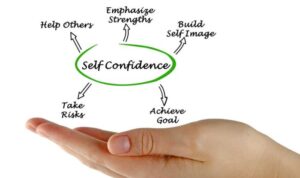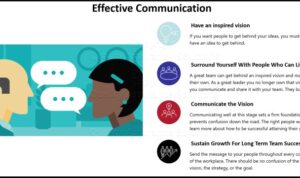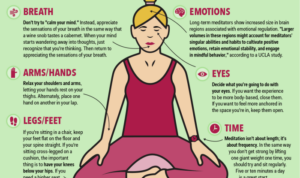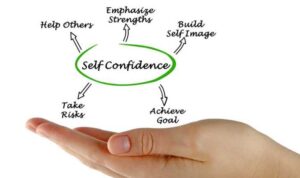Building Self-Confidence is all about owning your worth and strutting your stuff with pride. As we dive into this topic, get ready to discover the keys to unlocking your inner confidence and unleashing your full potential.
From understanding what self-confidence truly means to exploring the factors that shape it, this journey will empower you to embrace your unique strengths and conquer any self-doubt standing in your way.
Introduction to Building Self-Confidence
Self-confidence in personal development refers to the belief in one’s abilities, skills, and judgments. It is the assurance in oneself to tackle challenges, take risks, and pursue goals with a positive attitude.
Self-confidence plays a crucial role in various aspects of life, such as career advancement, relationships, academic success, and overall well-being. It enables individuals to overcome obstacles, handle failures gracefully, and maintain a resilient mindset in the face of adversity.
The Impact of Self-Confidence
- Improved Performance: Individuals with high self-confidence are more likely to perform well in tasks and projects as they believe in their capabilities.
- Effective Communication: Self-confident individuals can express themselves clearly, assert their opinions, and engage in meaningful conversations.
- Healthy Relationships: Confidence fosters healthy boundaries, respect, and trust in relationships, leading to stronger connections with others.
- Risk-Taking: Having self-confidence encourages individuals to step out of their comfort zones, take risks, and seize opportunities for growth and development.
- Mental Health: Self-confidence contributes to positive self-esteem, reduced stress, and overall mental well-being, promoting a more fulfilling life.
Factors Influencing Self-Confidence
Self-confidence can be influenced by a variety of internal and external factors, as well as past experiences. Understanding these factors is crucial in building and maintaining a healthy level of self-confidence.
Internal factors that can affect self-confidence include beliefs about oneself, self-esteem, and mindset. Positive self-talk, setting achievable goals, and learning from failures can all contribute to a stronger sense of self-confidence. Conversely, negative self-talk, perfectionism, and comparison to others can erode self-confidence over time.
On the other hand, external factors play a significant role in shaping self-confidence. These can include the support and encouragement received from family, friends, teachers, and mentors. Additionally, societal expectations, media influence, and cultural norms can impact how individuals perceive themselves and their abilities.
Past experiences also play a crucial role in influencing self-confidence. Positive experiences, such as accomplishments, praise, and recognition, can boost self-confidence. Conversely, negative experiences like criticism, rejection, and failure can undermine self-confidence. It’s essential to reflect on past experiences and use them as learning opportunities to build resilience and strengthen self-confidence.
Impact of Beliefs and Mindset
Beliefs and mindset are internal factors that significantly impact self-confidence. Positive beliefs about one’s abilities and a growth mindset can foster a strong sense of self-confidence. On the other hand, limiting beliefs and a fixed mindset can hinder self-confidence and personal growth. It’s important to challenge negative beliefs and cultivate a mindset focused on learning and improvement.
Social Support and Validation
External factors such as social support and validation from others can influence self-confidence. Positive feedback, encouragement, and validation from friends, family, and mentors can boost self-confidence. Conversely, criticism, negativity, and lack of support can diminish self-confidence. Building a network of supportive relationships and seeking constructive feedback can help enhance self-confidence.
Strategies for Building Self-Confidence
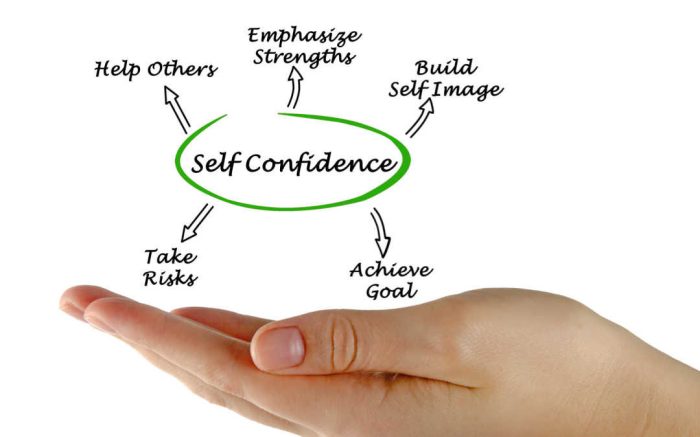
Building self-confidence is essential for personal growth and success. Here are some practical tips to help boost your self-confidence:
Setting Achievable Goals
Setting achievable goals is a great way to enhance self-confidence. When you set realistic and attainable goals for yourself, you create a sense of accomplishment each time you reach a milestone. This sense of achievement can boost your self-esteem and confidence, motivating you to take on bigger challenges.
Positive Affirmations, Building Self-Confidence
Positive affirmations play a crucial role in building self-confidence. By replacing negative self-talk with positive affirmations, you can rewire your brain to believe in your abilities and potential. Repeat affirmations such as “I am capable,” “I believe in myself,” and “I deserve success” to boost your confidence and self-esteem every day.
Overcoming Self-Doubt and Fears: Building Self-Confidence

Self-doubt and fears are common obstacles that can hold us back from reaching our full potential. Overcoming these mental barriers is essential for building self-confidence and achieving our goals. By implementing certain techniques and learning from those who have successfully conquered their own self-doubt, we can take steps towards a more confident and fulfilling life.
Challenging Negative Thoughts
One effective technique for overcoming self-doubt is to challenge negative thoughts and beliefs. This involves identifying and questioning the validity of our self-limiting beliefs. By reframing negative thoughts into more positive and empowering ones, we can change our mindset and boost our self-confidence.
- Acknowledge the negative thought.
- Challenge the accuracy of the thought.
- Replace the negative thought with a positive affirmation.
- Practice self-compassion and forgiveness.
Stepping Out of Your Comfort Zone
Stepping out of your comfort zone is another powerful way to overcome self-doubt and fears. By facing your fears and trying new things, you can expand your comfort zone and prove to yourself that you are capable of more than you think. Each small step outside your comfort zone can lead to increased self-confidence and personal growth.
- Start with small challenges and gradually increase the difficulty.
- Celebrate your successes, no matter how small.
- Focus on the process rather than the outcome.
- Seek support from friends, family, or a mentor.







